If you’ve been researching weight loss plans, you’ve likely come across the 1200-calorie diet. It’s a popular option for those looking to shed a few pounds, but like any diet, it’s essential to understand what it involves to stay healthy while reaching your goals.
So, what does a 1200-calorie diet look like, and is it the right choice for you? In this guide, we’ll explore how to build a balanced, nutritious meal plan around 1200 calories a day and how it can help you reach your weight loss goals.
Understanding the 1200-Calorie Diet: Is It Right for You?
At its core, the 1200-calorie diet is a low-calorie eating plan designed to promote weight loss. Consuming fewer calories than your body burns forces your body to use stored fat for energy, leading to weight loss over time.
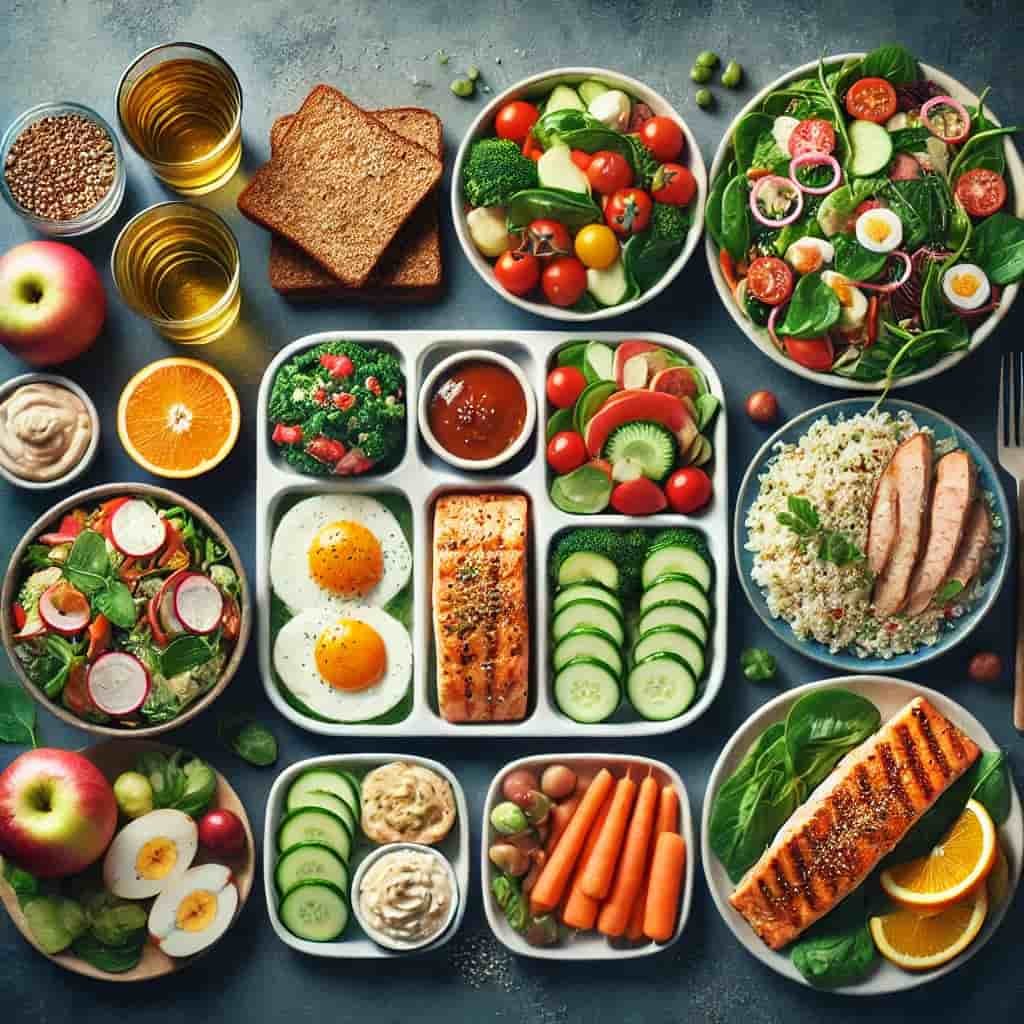
However, 1200 calories is quite low, so it’s important to ensure you’re still getting enough essential nutrients to keep your body functioning optimally. While a 1200-calorie diet can work for many people, it’s not one-size-fits-all. Factors like age, gender, activity level, and metabolism play a crucial role in determining whether this calorie target is suitable for you. Check out our review for MEVY Diet.
For example, an active person or someone with a larger frame may need more calories to maintain their health, while a sedentary individual might find 1200 calories sufficient for weight loss.
What a Day on a 1200-Calorie Diet Looks Like
The key to a successful 1200-calorie diet is making sure that the calories you do consume are packed with nutrients.
Each meal should focus on lean proteins, whole grains, healthy fats, and plenty of fruits and vegetables to keep you feeling full and energized throughout the day. Here’s an example of what a full day’s meals might look like on this diet:
Breakfast (300 Calories)
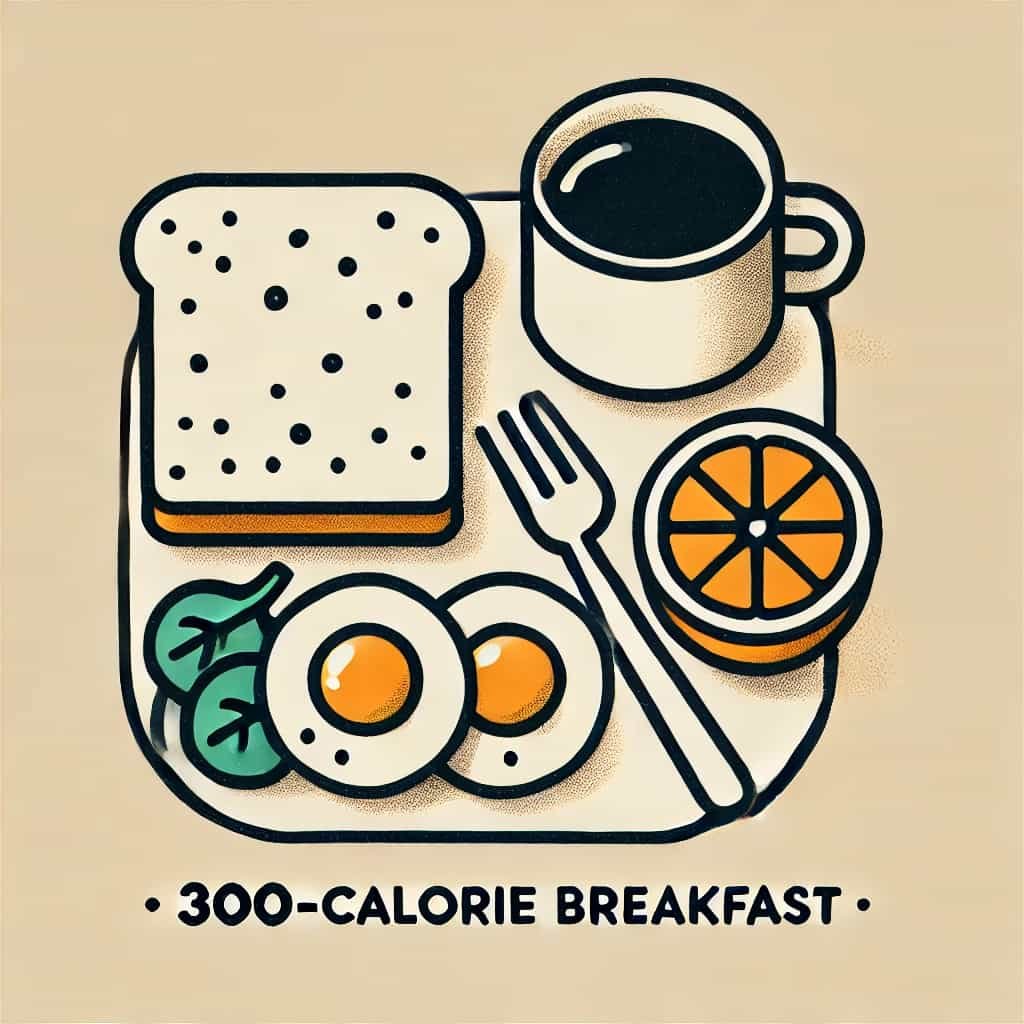
- 1 slice of whole-grain toast
- 2 scrambled eggs cooked with spinach
- 1 small orange
- 1 cup of black coffee or tea (no sugar)
This breakfast is rich in protein from the eggs, fiber from the toast, and a boost of vitamin C from the orange, giving you energy to start your day. Check out our review for Paleo Diet.
Lunch (350 Calories)
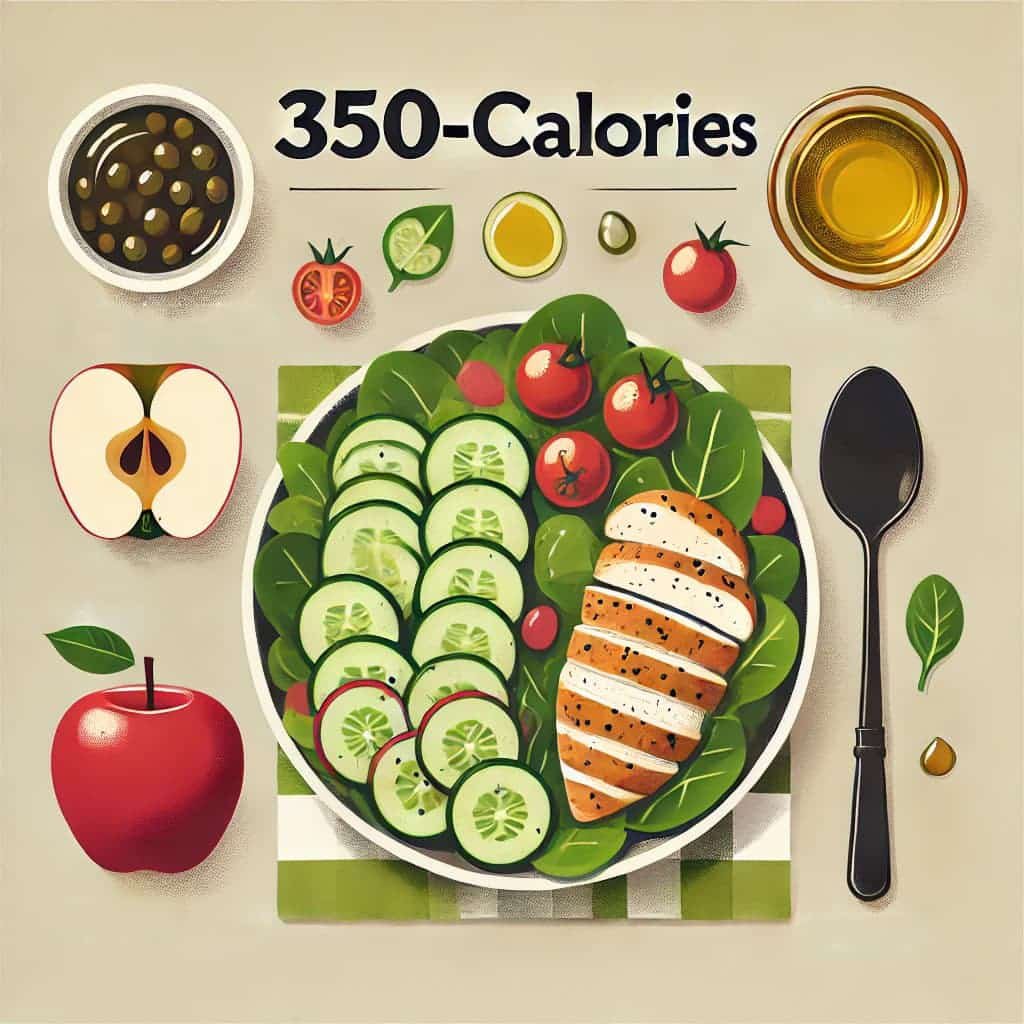
- Grilled chicken salad with mixed greens, cucumbers, cherry tomatoes, and a balsamic vinaigrette
- 1 tablespoon of olive oil
- 1 small apple
A nutrient-dense lunch like this provides lean protein, fiber, and healthy fats that keep you satisfied until your next meal.
Afternoon Snack (100 Calories)
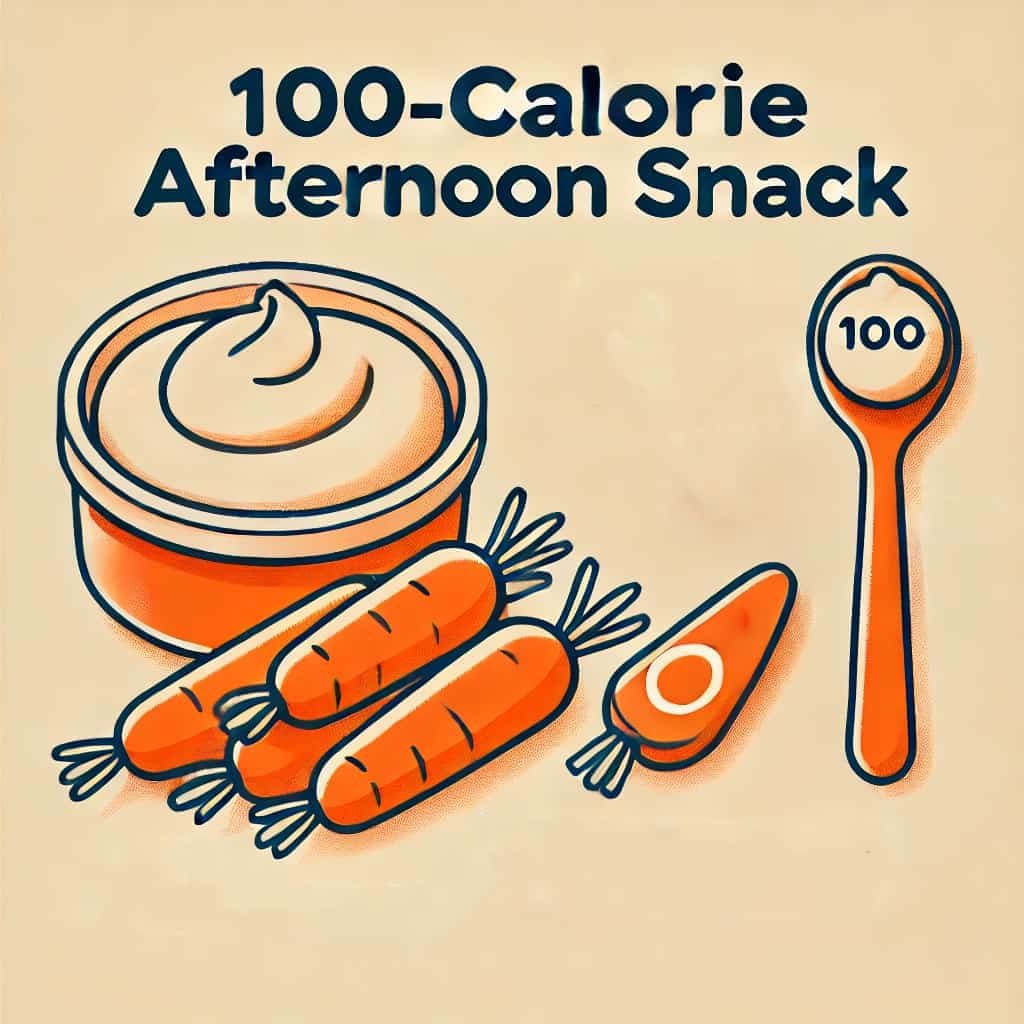
- 1 cup of baby carrots
- 2 tablespoons of hummus
This snack is low-calorie but high in fiber and healthy fats, helping to curb hunger between meals.
Dinner (450 Calories)
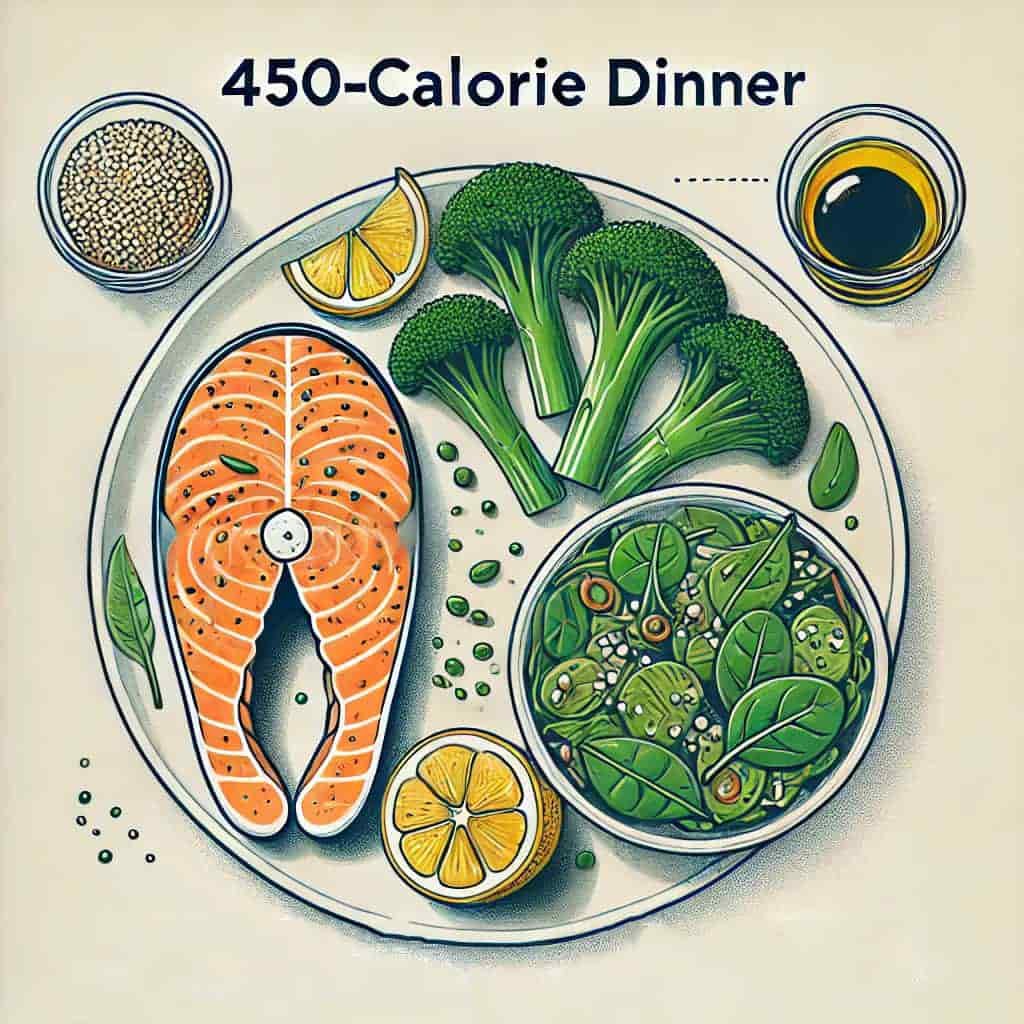
- Baked salmon fillet
- ½ cup of quinoa
- Steamed broccoli with a squeeze of lemon
- 1 small mixed green salad with olive oil and balsamic vinegar
For dinner, focus on lean protein like salmon, which is rich in omega-3 fatty acids, alongside fiber-rich quinoa and vegetables to round out your day. Check out our review for DASH Diet.
Tips for Following a 1200-Calorie Diet Successfully
Staying on track with a low-calorie diet can be challenging, especially when you’re first getting started.
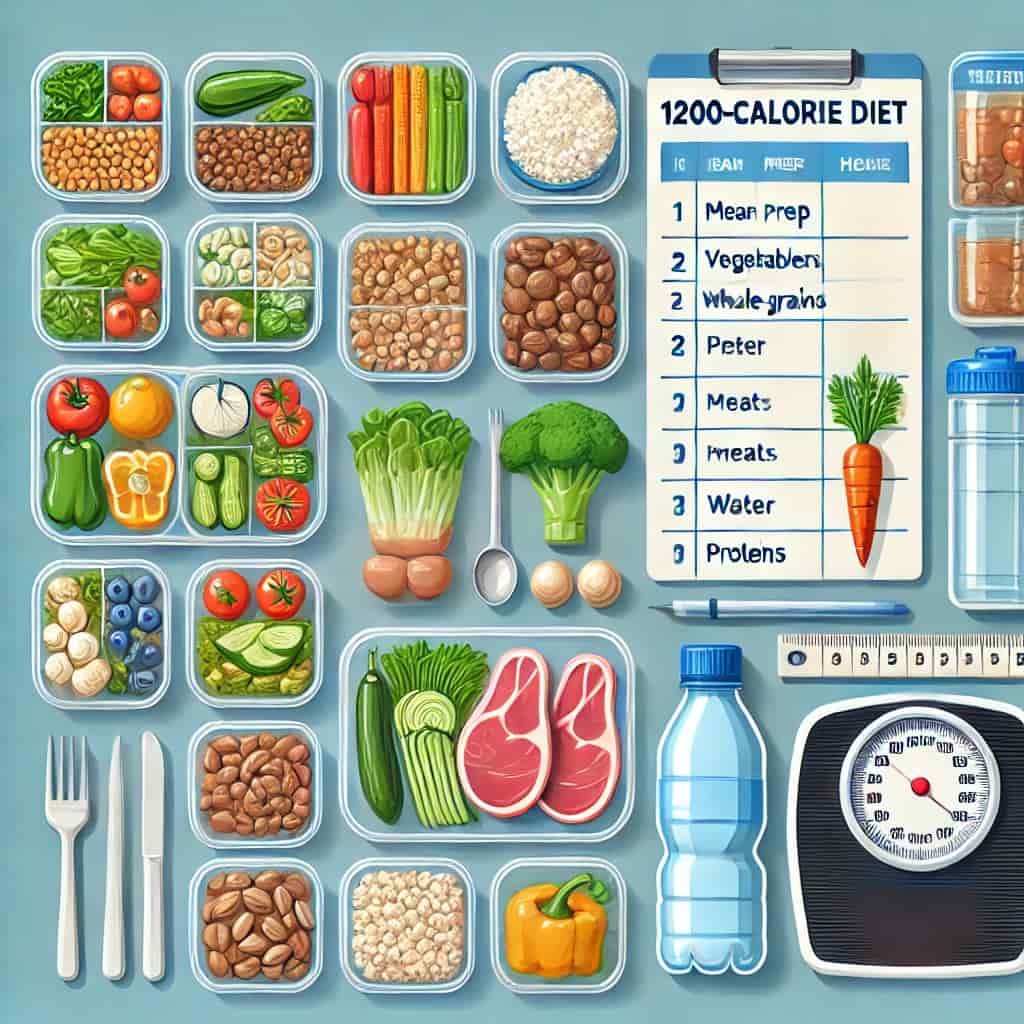
Here are some tips to help you stick to your plan without feeling deprived:
- Plan Your Meals: Meal prepping in advance ensures you stay within your calorie limits while also avoiding impulsive, less healthy choices.
- Eat Plenty of Fiber: Foods high in fiber, like vegetables, fruits, and whole grains, help you feel full longer, making it easier to resist snacks and over-eating.
- Focus on Protein: Protein helps preserve muscle mass while you lose weight and also keeps you feeling satisfied. Include lean meats, eggs, beans, and tofu in your meals.
- Stay Hydrated: Drinking plenty of water can help curb hunger and keep your energy levels up.
- Watch Your Portions: On a 1200-calorie diet, portion control is key. Using a food scale or measuring cups can ensure you’re not accidentally over-consuming.
What Are the Benefits of a 1200-Calorie Diet?
A 1200-calorie diet can offer several benefits, particularly for those looking to lose weight in a structured and controlled way. Some potential advantages include:
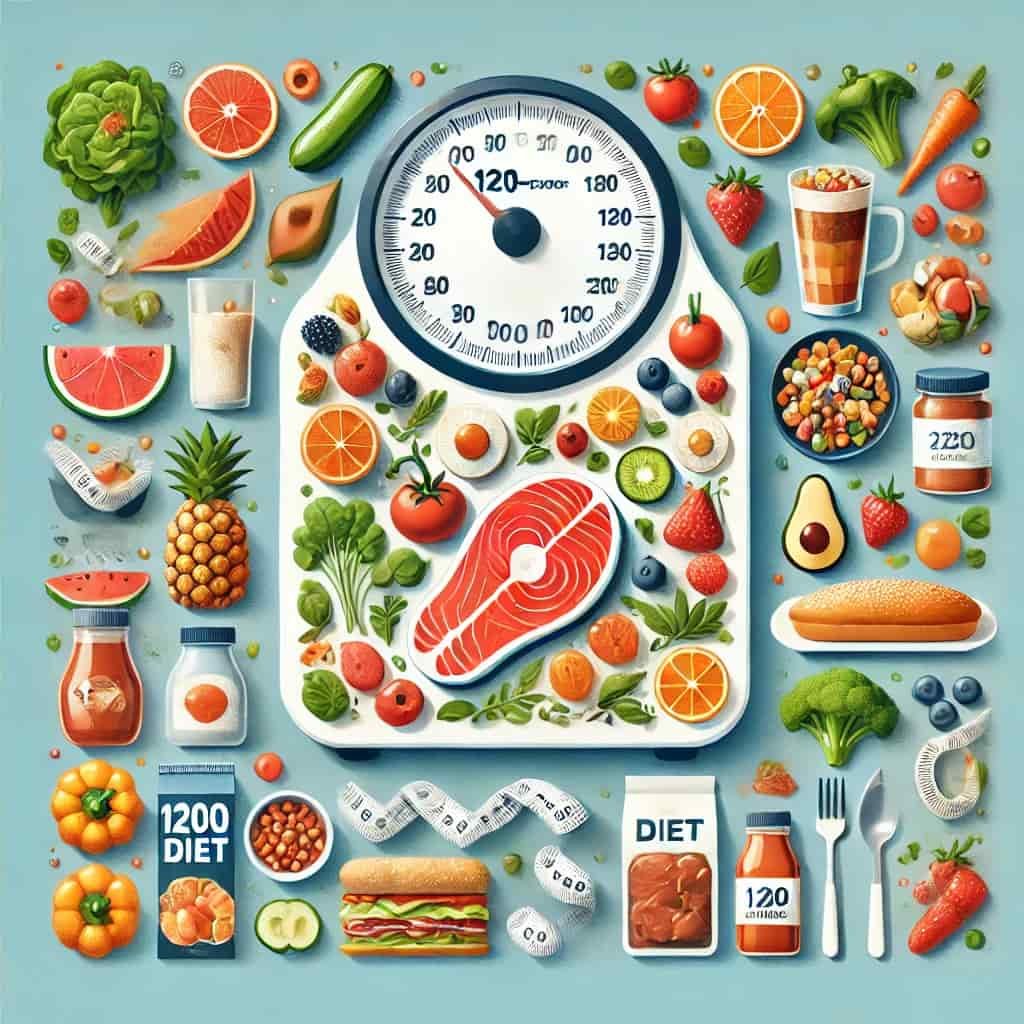
- Weight Loss: By consuming fewer calories than your body needs to maintain its current weight, you create a calorie deficit, leading to weight loss over time.
- Improved Portion Control: Following a strict meal plan can help you become more mindful of portion sizes and better understand your body’s hunger cues.
- Healthier Eating Habits: With a focus on whole, nutrient-dense foods, many people find that following a 1200-calorie diet helps them eliminate processed foods and develop healthier eating habits overall.
Potential Downsides of a 1200-Calorie Diet
While there are benefits, there are also potential risks to following such a low-calorie diet:
- Nutrient Deficiency: Restricting your calorie intake can sometimes lead to a lack of essential nutrients, especially if your diet isn’t well-rounded. It’s important to include a variety of foods that provide vitamins, minerals, and fiber.
- Lack of Energy: Some people may feel fatigued or weak on a 1200-calorie diet, especially if their energy needs are higher due to activity levels.
- Difficulty Maintaining the Diet: Strict calorie limits can feel restrictive over time, making it difficult to stick to the plan long-term.
Is a 1200-Calorie Diet Sustainable?
A 1200-calorie diet can be effective for short-term weight loss, but it’s not always sustainable in the long run. For many people, a higher-calorie plan that includes more flexibility and variety might be a better option for maintaining weight loss. Check out our review for Gelatein Orange.
If you’re considering sticking to a 1200-calorie diet, it’s essential to regularly assess how you’re feeling physically and mentally, and adjust as needed.
Conclusion: Is a 1200-Calorie Diet Right for You?
The 1200-calorie diet can be a powerful tool for weight loss, but it’s not for everyone. If you’re considering trying it, ensure that you’re getting all the nutrients your body needs by focusing on whole, unprocessed foods. Check out our review for Ayurvedic Diet
While effective in the short term, it’s also important to listen to your body and make adjustments to create a plan that’s sustainable for you. If in doubt, consult with a healthcare provider or dietitian to make sure this approach aligns with your health and wellness goals.
FAQs About the 1200-Calorie Diet
Is a 1200-calorie diet safe for everyone?
No, this diet may not be appropriate for everyone, especially those with higher energy needs such as athletes, pregnant women, or individuals with certain health conditions. It’s always best to consult with a healthcare provider before starting any new diet.
How much weight can I lose on a 1200-calorie diet?
Weight loss varies from person to person, but generally, a deficit of 500 to 1,000 calories per day can lead to a weight loss of about 1-2 pounds per week.
Can I exercise while following a 1200-calorie diet?
Yes, but be cautious. Depending on your activity level, you may need to adjust your calorie intake to avoid feeling weak or fatigued. Make sure to prioritize nutrient-dense foods that fuel your workouts.
What happens if I go over 1200 calories?
Going slightly over your calorie goal from time to time won’t derail your progress. The key is consistency over time. However, if you find yourself constantly exceeding your calorie limit, you may need to reconsider whether 1200 calories is the right target for you.
Can I eat out while on a 1200-calorie diet?
Yes, but it requires careful planning. Many restaurants provide nutrition information, so choose dishes that fit within your calorie budget, or ask for modifications to reduce calories (e.g., dressing on the side, grilled instead of fried).
Will I feel hungry on a 1200-calorie diet?
You might feel hungry at first, especially if you’re used to consuming more calories. To combat hunger, focus on high-fiber and high-protein foods, drink plenty of water, and eat smaller, frequent meals throughout the day.